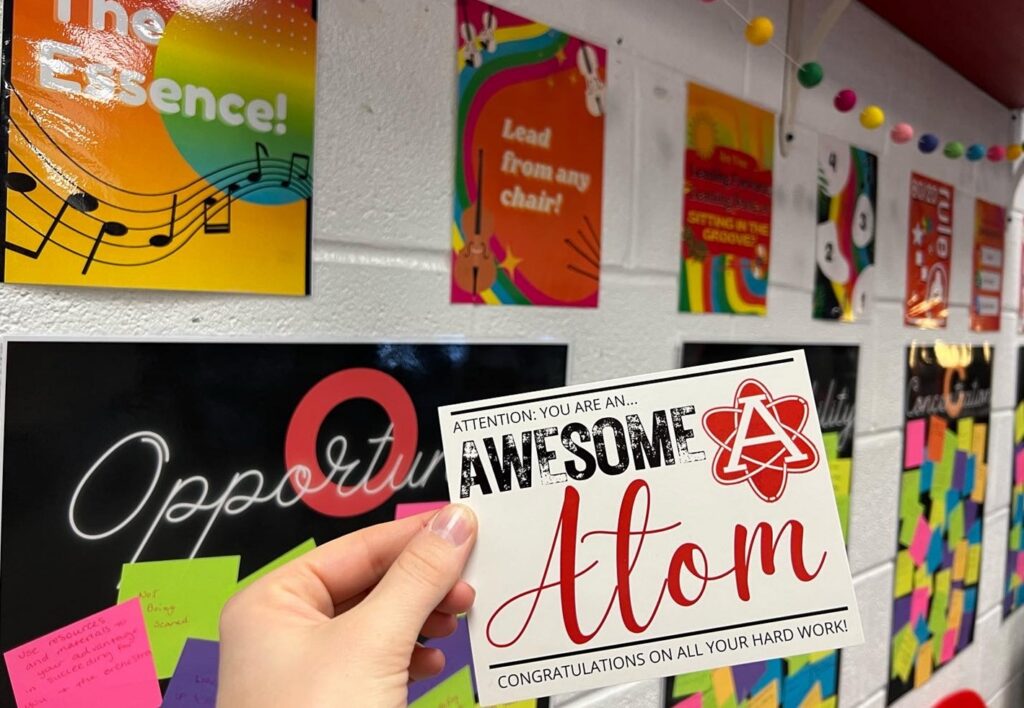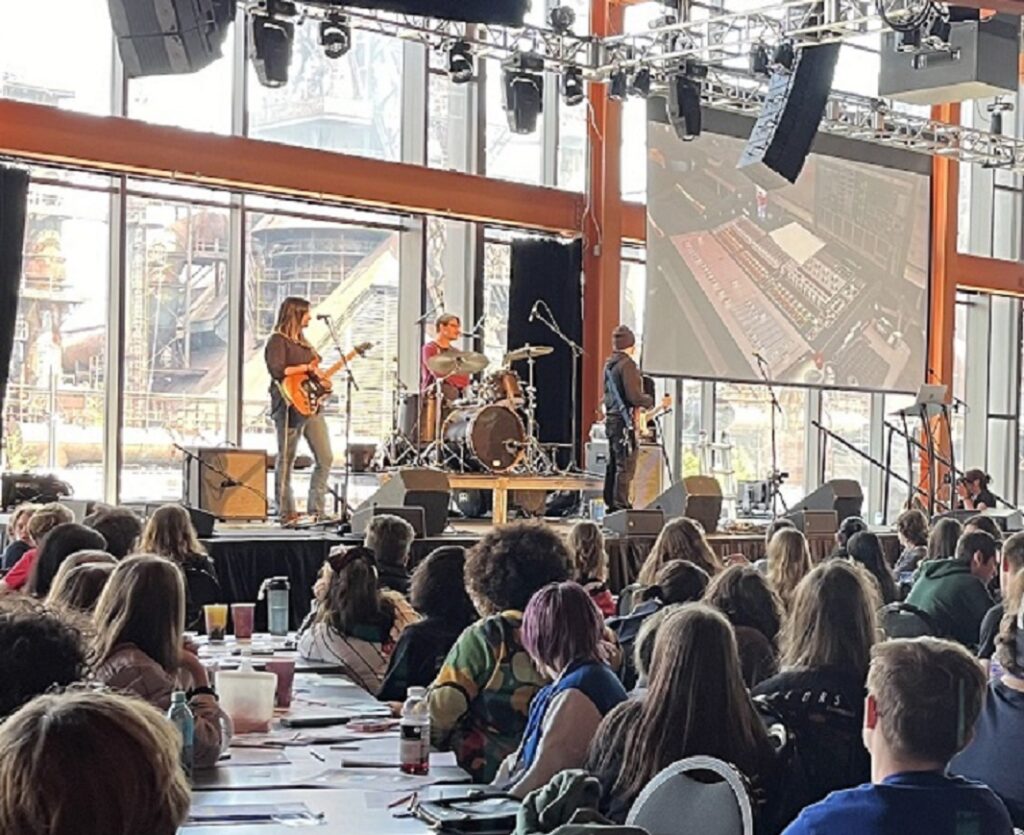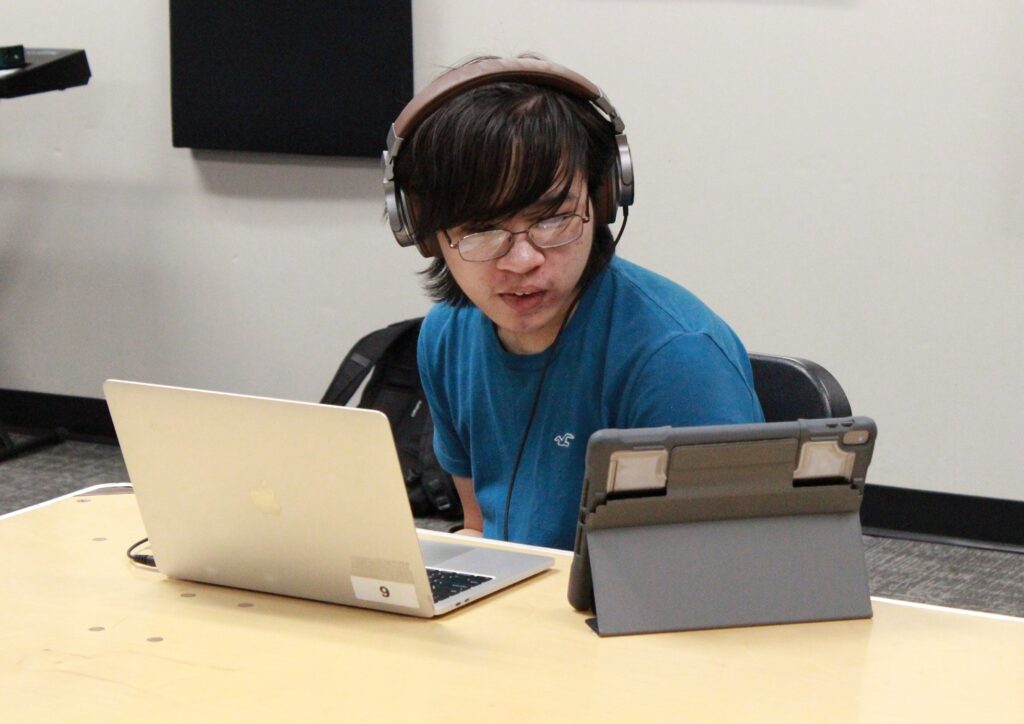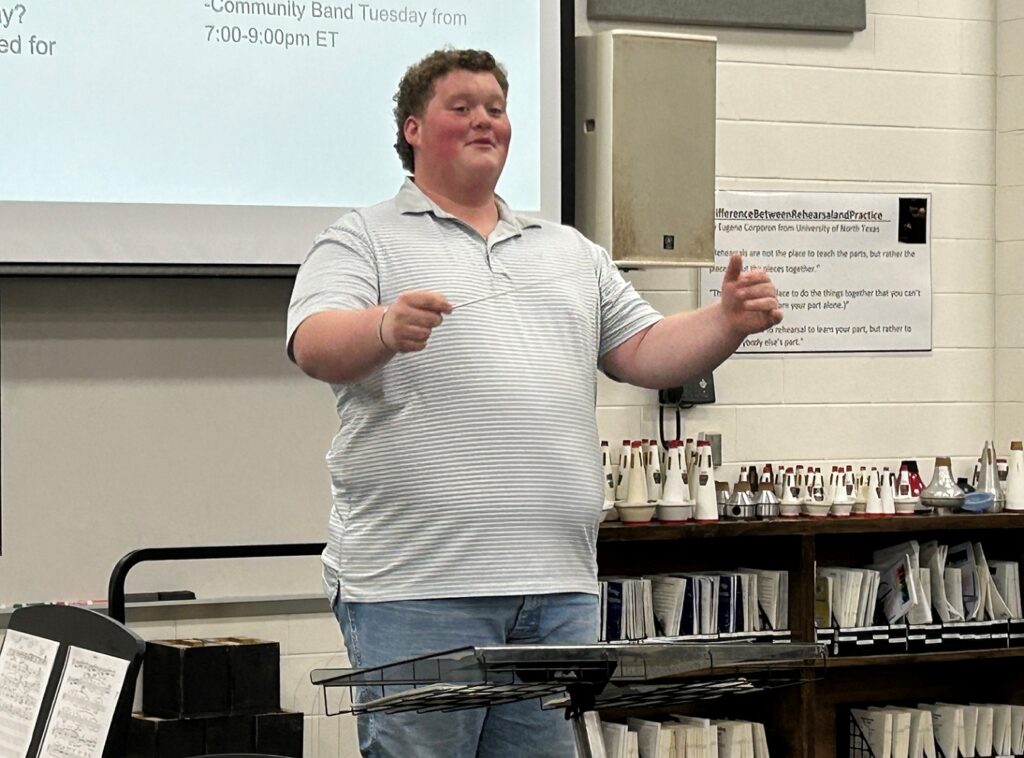5 Ways to be a Team Player
True teamwork requires active participation at your school and within your district. Help your fellow music educators as often as you can and seek their input when you need it.
Music education doesn’t happen in a bubble. No matter how masterful we are as music educators, we can’t do it alone. It takes a team.
My fellow music educators have played significant roles in the success of my students and program. Music departments are full of talented teachers and staff who are an incredible bank of content, institutional and instructional knowledge. They can be your biggest cheerleaders, advocates, mentors and when needed, constructive critics. They can pitch in when you need someone to cover a rehearsal or they can submit that important document while you are out sick.
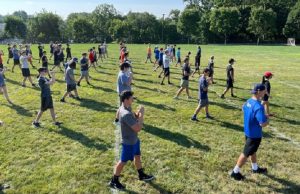 I highly value my music department teammates, but I had to learn how to be an effective member of the team. I had to open my mind to the concept that the success of my colleagues’ programs was just as important as mine. I came to recognize that many stakeholders view the department holistically and the success of any aspect of our music program was a reflection of our team. I learned how much we had to follow the motto of the Three Musketeers: “One for all and all for one.” Most notably, I realized that like most things in life, what we put into the team is what we will get out of it.
I highly value my music department teammates, but I had to learn how to be an effective member of the team. I had to open my mind to the concept that the success of my colleagues’ programs was just as important as mine. I came to recognize that many stakeholders view the department holistically and the success of any aspect of our music program was a reflection of our team. I learned how much we had to follow the motto of the Three Musketeers: “One for all and all for one.” Most notably, I realized that like most things in life, what we put into the team is what we will get out of it.
Much like a musical ensemble, there are no benchwarmers in a successful music department. Simply being on the team doesn’t make you a team player. True teamwork requires active participation. During my five years of teaching in the Springfield School District in Pennsylvania, I have learned from my colleagues, who modeled how to be a team player. The ideas below have had the most substantial team impact and have personally provided me with an enhanced sense of satisfaction and camaraderie.
I hope these five practical ideas are especially helpful for new music educators or future music educators who don’t get the opportunity to practice teamwork until they are actively teaching.
1. Lend a Hand
One simple and straightforward way to be a great team player is to lend a hand to your colleagues. While all music educators are busy throughout the day, there are lots of little ways we can assist other music teachers in our building and across the district.
When considering how you can lend a hand in your department, assess your strengths and weaknesses. Maybe you have some financial experience, graphic design skills or technology prowess. Consider how you can put those skills to use for the good of your team.
Here are a few ideas:
- Cover a rehearsal or class for an absent director/teacher.
- Help with photocopying or other administrative work.
- Offer to manage the district or building music calendar or budget.
- Set up or break down a stage for rehearsal, especially in shared spaces.
- Share helpful content such as program templates or parent letters.
- Run the district’s music social media accounts.
2. Attend and Assist Your Colleagues’ Concerts
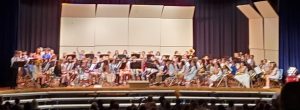 Your presence alone at a concert sends a clear message to your colleagues that you support them, their students and music education as a whole regardless of which ensemble or grade level is performing. Although showing up is meaningful, a great teammate takes it to the next level by assisting their colleagues during those stressful performances.
Your presence alone at a concert sends a clear message to your colleagues that you support them, their students and music education as a whole regardless of which ensemble or grade level is performing. Although showing up is meaningful, a great teammate takes it to the next level by assisting their colleagues during those stressful performances.
Here are a few ways you can assist at concerts:
- Tune or warm-up performers.
- Be a greeter and pass out programs.
- Monitor students.
- Assist performers in transitioning between the green room and stage.
- Help with those inevitable last minute problems: Stuck/misaligned valves, broken reeds, lost music, etc.
- Perform with their ensemble! Cover that unfilled part or fill in for a student who is absent.
Attending your colleagues’ performances not only benefits them and their programs, but it can be immensely beneficial to your program. Don’t forget about performances of feeder programs — these are great opportunities to connect with students and parents who you will be looking to recruit for your program in the coming years. If you are attending the performance of former students, isn’t it gratifying to see them joyously succeed in music at a higher level?
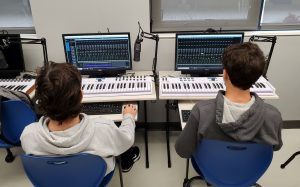 Over the past several years, one of the greatest intrinsic benefits of attending performances throughout the district is connecting and advocating with administrators! Take the opportunity to highlight for a principal, superintendent or school board member some of the excellent music learning occurring throughout your district. Mentioning the growth of an ensemble or program is much more impactful to an administrator when the group is sitting on stage with big smiles.
Over the past several years, one of the greatest intrinsic benefits of attending performances throughout the district is connecting and advocating with administrators! Take the opportunity to highlight for a principal, superintendent or school board member some of the excellent music learning occurring throughout your district. Mentioning the growth of an ensemble or program is much more impactful to an administrator when the group is sitting on stage with big smiles.
Comments such as “This group performs with excellent dynamic contrast” or “This is a high school level piece that the middle school chorale is performing beautifully” give the administrator specificity to what they are hearing. Such comments also give credence to the music instruction your colleagues are providing in their building. Finally, it can’t go unmentioned that administrators value your presence at performances. Supervisors in just about any field like knowing that their employees work together during critical projects and support one another.
3. Seek Input

While attending your colleagues’ performances is a conspicuous way of being a team player, seeking input from them is definitely more subtle. The beauty of seeking input is that you will simultaneously build respect and rapport within your department while getting great advice from your skilled and diverse teammates. When we seek advice, we tacitly send them the message that we value and respect their knowledge and experience as professional music educators. Seeking advice can also open up discussions about pedagogy, philosophy, collaboration and much more. These conversations can be the catalyst for creative innovation and collaboration in your department, which just so happens to be tip #4.
As a high school band director, I find it especially important to make sure that you are seeking input from colleagues who work as a member of your specific ensemble or program, such as assistant directors, associate conductors, color guard instructors or accompanists. Often people outside of music education see these individuals as secondary to the “director,” but we know that these individuals are our equals and peers. Seeking their input and allowing them to be decision makers in your organization will validate their equality as professional musicians and educators. It won’t go unnoticed by students and parents either!
Here are some great opportunities for seeking input:
- Repertoire selection.
- Curriculum writing and development.
- Dealing with a conflict.
- A lesson plan or instructional technique.
- Asking them to review important documents such as syllabi, handbooks or letters.
- Your teaching and pedagogy — consider having them reflect and provide feedback on a lesson or your conducting.
4. Collaborate Creatively
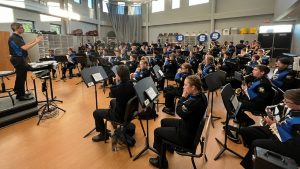 Offering collaboration as part of being a team player is cliche. In fact, suggesting collaboration alone doesn’t offer much value because all educators must collaborate throughout the day to do their jobs. What I’m suggesting is that great teammates collaborate creatively beyond the routine collective tasks and events we do as colleagues.
Offering collaboration as part of being a team player is cliche. In fact, suggesting collaboration alone doesn’t offer much value because all educators must collaborate throughout the day to do their jobs. What I’m suggesting is that great teammates collaborate creatively beyond the routine collective tasks and events we do as colleagues.
A great example of this type of collaboration is a recent invitation I received from Mike Trycieckyj,to assist him in hosting a beginner guitar professional development session for our districtwide staff. This invitation brought together two unlikely departmental collaborators — a high school band director and an elementary general music teacher — and it had an amazing impact on music advocacy and appreciation amongst our fellow educators. Creative collaboration usually results in larger scale or unique impactful experiences that we wouldn’t be able to provide without the support of our colleagues.
Here are a few ways you can collaborate creatively:
- Host a vertical concert that includes all like ensembles from beginner to high school.
- Provide a professional development session with a colleague in your district or at a music educator conference.
- Co-host a performance or adjudication for your local or state music educator organization.
- Co-write an article with your colleagues for a music educator journal/blog or a district publication.
- Co-design and implement a new music program or ensemble for your school. Music technology, modern band and mariachi programs are rapidly growing across the country!
5. Gather with Your Department
 The relationships you have with your colleagues matter! Everyone you work with doesn’t need to be a personal friend, but great team players work toward building healthy relationships with their peers. One of the best ways to do this is to gather with your colleagues outside of school. My department meets at least bi-yearly to share in fellowship as a districtwide music educator community.
The relationships you have with your colleagues matter! Everyone you work with doesn’t need to be a personal friend, but great team players work toward building healthy relationships with their peers. One of the best ways to do this is to gather with your colleagues outside of school. My department meets at least bi-yearly to share in fellowship as a districtwide music educator community.
If your department is holding such events and you aren’t attending, you should! These meetups are a wonderful time to talk shop but they also provide opportunities to get to know who your fellow music educators are on a personal level. At our gatherings, we usually invite former and retired music teachers from the district. I enjoy picking the brains of these knowledgeable and experienced educators. If your department isn’t currently doing anything, this is a great time for you as a team player to organize or host a gathering.
Here are a few ways you can get your team to huddle:
- Have a holiday party or meal.
- Host a gathering after a community event.
- Get reservations for lunch or dinner. Half days are a great time to do lunch!
- Have a summer cookout and welcome your colleagues and their families.
- Have a game night.
- Buy bulk tickets to a sporting event or performance.
Do you have other great ideas about how to be a team player? I’d love to hear from you! Feel free to email me at or write to educators@yamaha.com.










